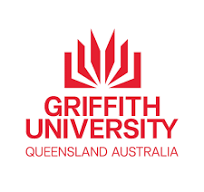
BACHELOR OF HEALTH SCIENCE


Overview
3 YEARS
YES
AU $39,000 PER YEAR
FEB, JULY, NOV
Overview
- You will learn from internationally renowned experts through hands-on, laboratory-based experience in state-of-the-art facilities.
- Health Science encompasses studies in areas such as genetics, anatomy and physiology, chemistry and biochemistry, nutrition, molecular and cellular biology, communicable diseases, environmental health, and toxicology. Your firm grounding in health science will develop through understanding these topics with the opportunity to develop specialist areas of knowledge through the diverse range of electives.
- The Bachelor of Health Science offers four majors in: Environmental Health, Environmental Toxicology, Information Technology and Communication and Media.
- In the Environmental Health and Environmental Toxicology majors you will learn about environmental agents such as climate change, pollution and food safety that have the potential to adversely affect the health of any community. By studying local and international examples, you will learn how to address the very factors that impact our environment while understanding the rationale and practice of risk assessment.
- In the Information Technology major, you will build on the strong health science base built in foundation year and in core courses, with experience of topics and themes expected to be key to health innovation, including data management, programming, and software and app design.
- In the Communication and Media major you will gain specific expertise in strategic communication to develop and deliver health information and campaigns. Alongside journalism and media training, you will explore ethical communication, health and science communication and crisis and disaster management. You will gain a sophisticated understanding of the contemporary media landscape (including legacy, online and social media) and its essential role in 21st century public health practise. The skills developed in this major build upon the strong foundational health knowledge, and core courses in second and third year, providing complementary expertise in health, and science communication.
- Honours is available through an additional year of study.
Related degrees
> Bachelor of Health Science (Honours) – 2101
> Progression is dependent upon satisfying admission requirements.
Program accreditation
> The Environmental Health major is accredited by Environmental Health Australia (EHA).
Professional recognition
> The following organisations recognise graduates of this award:
*Australian and New Zealand Society for Cell and Development Biology (ANZSCDB)
*Australian Society for Biochemistry and Molecular Biology (ASBMB)
*Australasian Society for Human Biology (ASHB)
*Australian Society for Medical Research (ASMR)
*Australian Society for Microbiology (ASM)
*Environmental Health Australia (EHA)
Attendance information
> The Bachelor of Health Science is offered full-time and on-campus at the Gold Coast.
> Students commencing in this program from Trimester 2 are required to complete core courses in Trimester 3.
> The Trimester 2 intake for this program will require students to undertake compulsory study in Trimester 3 in Year 1 of the program.
> If you are an International student on a student visa, you must ensure that you enrol in a way that will allow you to complete your enrolment within the expected program duration as stated on your Confirmation of Enrolment (CoE).
My career opportunities
> Our diverse electives will help equip you for careers in a range of scientific and allied professions including working as a scientific advisor, pathology technician, industry representative, technical sales specialist, laboratory technician or research assistant.
> This degree can provide a foundation for postgraduate application to medicine or other postgraduate allied health degrees. You will also be eligible to apply for entry to a graduate entry teacher preparation program.
> Graduates with the Environmental Health major will be prepared for a career as an environmental health officer working in areas such as food and drug safety, environmental monitoring, air and water quality, noise control and radiation monitoring. These areas of employment may also be available for graduates with the Environmental Toxicology major.
Inquire Now
Entry Requirements
> Qualification: School Leaving Certificate Examination awarded by National Examinations Board
> Your entry requirements include: Grade average of 3.6 in the final year results
> Qualification: Nepalese Proficiency Certificate
> Your entry requirements include: Grade average of 89 in the final year results
> Pathways
> Griffith College provides a direct entry pathway for this degree.
> English language requirements apply to International applicants and other applicants whose previous study was undertaken in a language other than English. The minimum English language requirements for such applicants for entry to this program are as follows:
> A minimum overall band score of 6.5 on IELTS (Academic) with no sub-score of less than 6.0
> OR a minimum score of 575 on TOEFL
> OR an internet-based (iBT) TOEFL score of 79 (no sub-score less than 19)
> OR no score less than 3+ in each skill of the ISLPR (conducted by ISLPR Language Services only)
> OR a minimum overall score of 176 (no score less than 169) on C1 Advanced (formerly Cambridge Certificate in Advanced English) or C2 Proficiency (formerly Cambridge Certificate of Proficiency in English)
> OR an overall score of 58 in the Pearson Test of English (Academic) with no score less than 50.
Fees
Tuition fees
> An International student pays tuition fees.
> Students are liable for tuition fees for the courses they are enrolled in as at the census date.
> The tuition fee for students who commence their program prior to 2014 is charged according to the approved program fee for the trimester in which the student commenced the program.
> FEE (INDICATIVE): $39,000 per year
Scholarships
> file:///C:/Users/LANDMASRK%20EDUCATION/Documents/Scholarships%20and%20finance%20Griffith%20UNI.html
Popular Courses
Find your perfect course
Head Office
Kamaladi, Kathmandu
Tel: +977 14542781, 9845566225
E-mail: info@landmarkedu.com
Sydney office
46 Macquarie Street,
Parramatta, NSW
Tel: +61 415 122 814
Branch office
Tel: 056-590825
Tel: 021-590828
Tel: 977-71-591694



